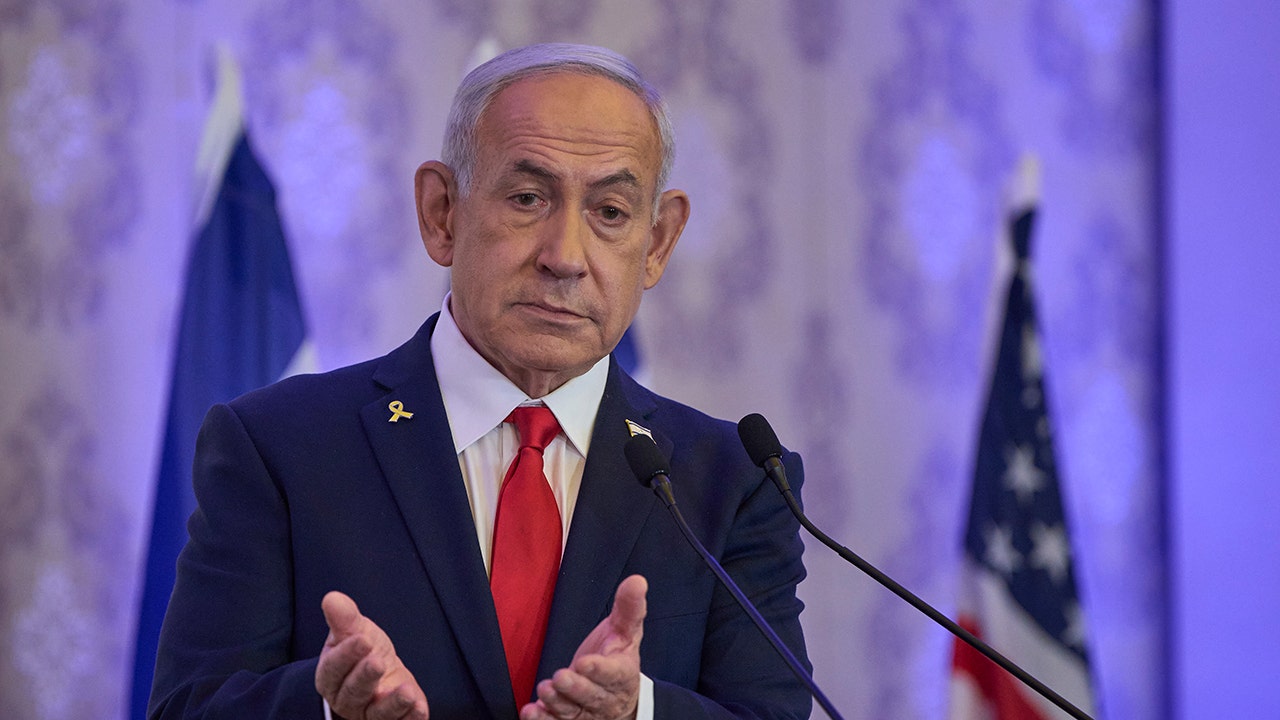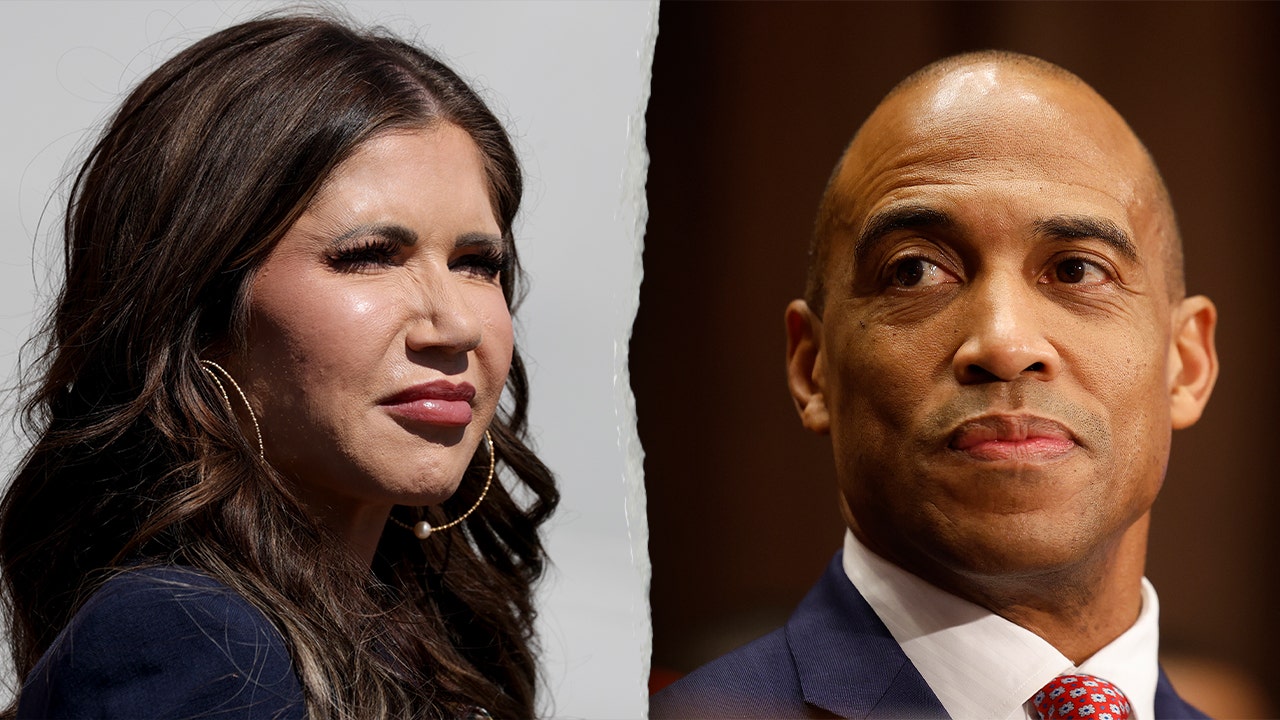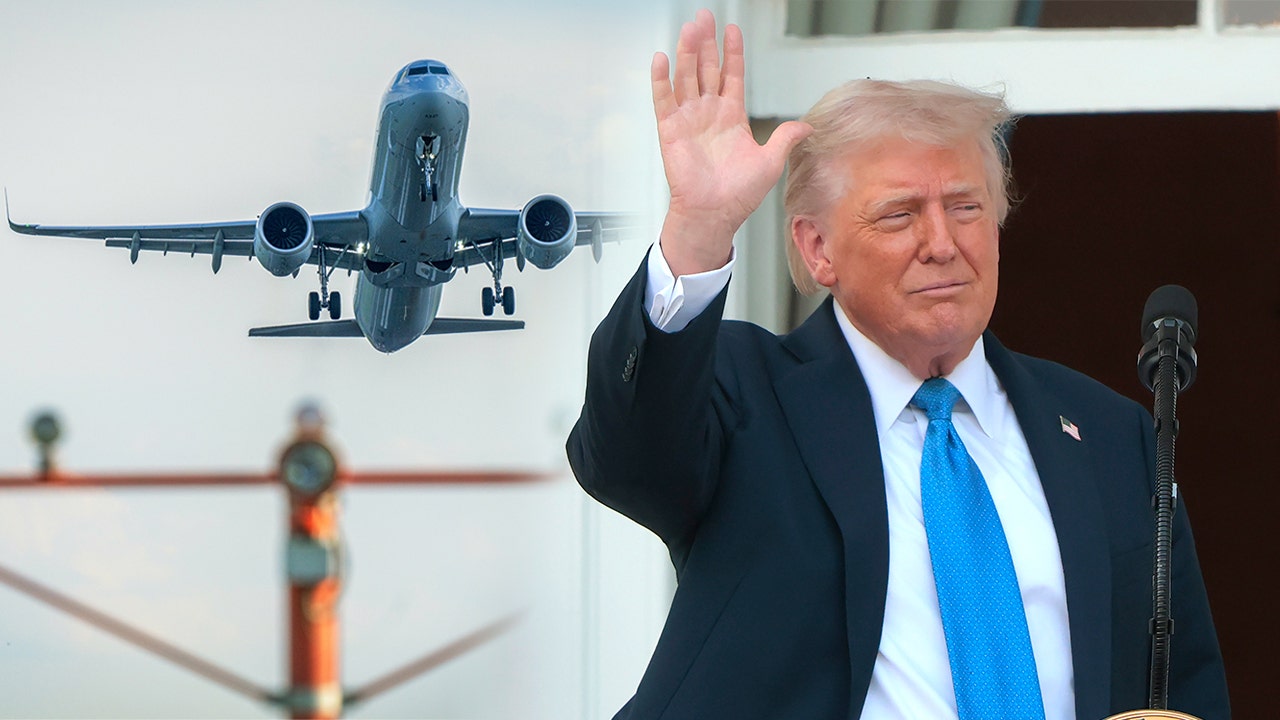NEWYou can now listen to Fox News articles!
A former Israeli official has offered a two-pronged strategy as “the only way” to free the remaining hostages captured by Hamas terrorists during the Oct. 7, 2023 attacks.
“Today, in my estimation, Israel must declare that it is no longer willing to negotiate as it has been. Then, it must do two things simultaneously,” Yossi Amrusi, a former senior Shin Bet official, told Israeli outlet Maariv, a sister publication to The Jerusalem Post.
“First, push as much as it can for separating Gazans from Hamas through designated humanitarian zones,” he said. “That will also lead to control over humanitarian aid, so that it doesn’t reach Hamas. And second, since it is estimated that hostage locations are known – we must conduct local negotiations with those holding the hostages. Offer money and their lives in exchange for the hostages.”
Amrusi argued that Hamas benefits from the prolonged negotiations and questioned whether anyone remaining in Gaza has the authority to make decisions.
ISRAEL ANNOUNCES IMMEDIATE RESUMPTION OF GAZA AID AIRDROPS AMID GROWING HUNGER CRISIS
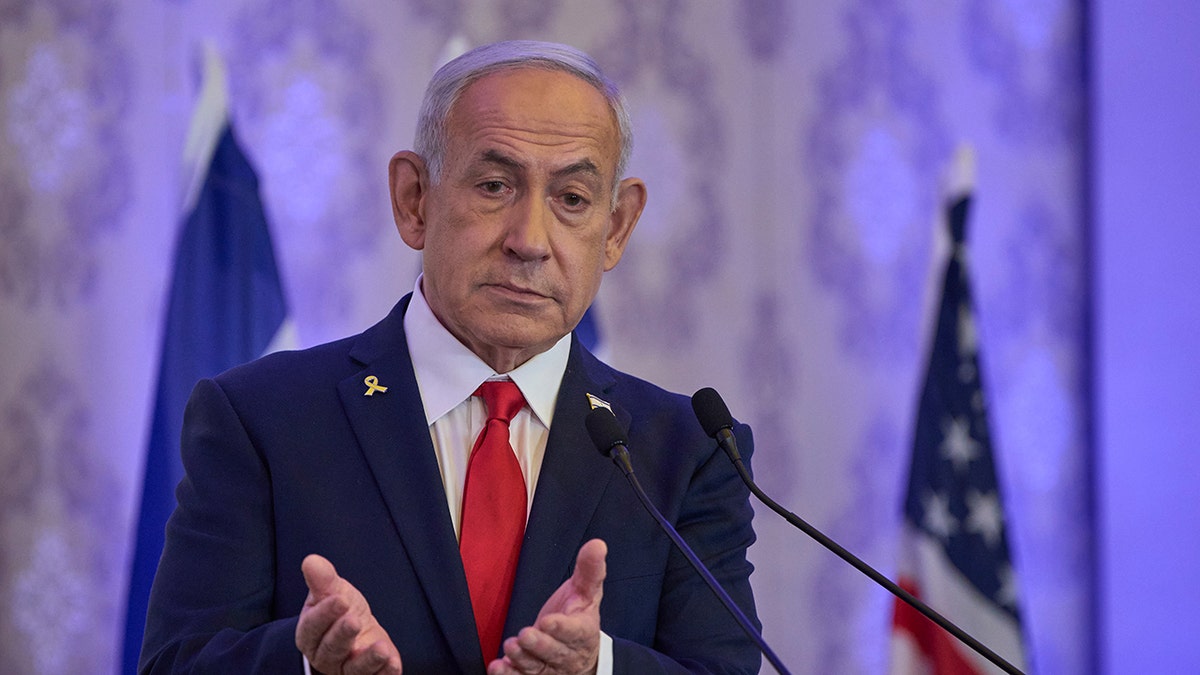
Israeli Prime Minister Benjamin Netanyahu speaks to the audience at a conference in Jerusalem on Sunday, July 27, 2025. (AP Photo/Ohad Zwigenberg)
“A clever Persian trader once told me in the market: ‘You’ll win the deal when you’re willing to lose it.’ And why? For several reasons,” he reportedly said. “One, Hamas benefits from dragging things out. It continues to hold the key to its survival, and in the meantime, who knows what could happen? European pressure, a false starvation campaign, Trump might flip on Israel, internal pressure on the government. All of these, and each on its own, are good for them.”
He also voiced skepticism about Qatar’s effectiveness as a negotiating party.
“I’m not sure that Qatar, the mediator, even has the ability to decide anything. And it’s not even certain they have communication with Hamas’s internal leadership for consultations and decision-making,” Amrusi said. “It’s important to ask: is there anyone in Hamas’ Gaza who can make decisions? Who has control over those holding the hostages? Do they even know where they are, and what condition they’re in? After all, some of the hostages aren’t even in their hands.”
“I’ve always said Hamas will release the hostages when we force them to release them,” he continued, “but we don’t know how to do that. Military pressure isn’t being applied to its full extent, and our soldiers’ hands are pretty tied. We’re bringing in humanitarian aid that gives Hamas life – oxygen, fuel, and money.”
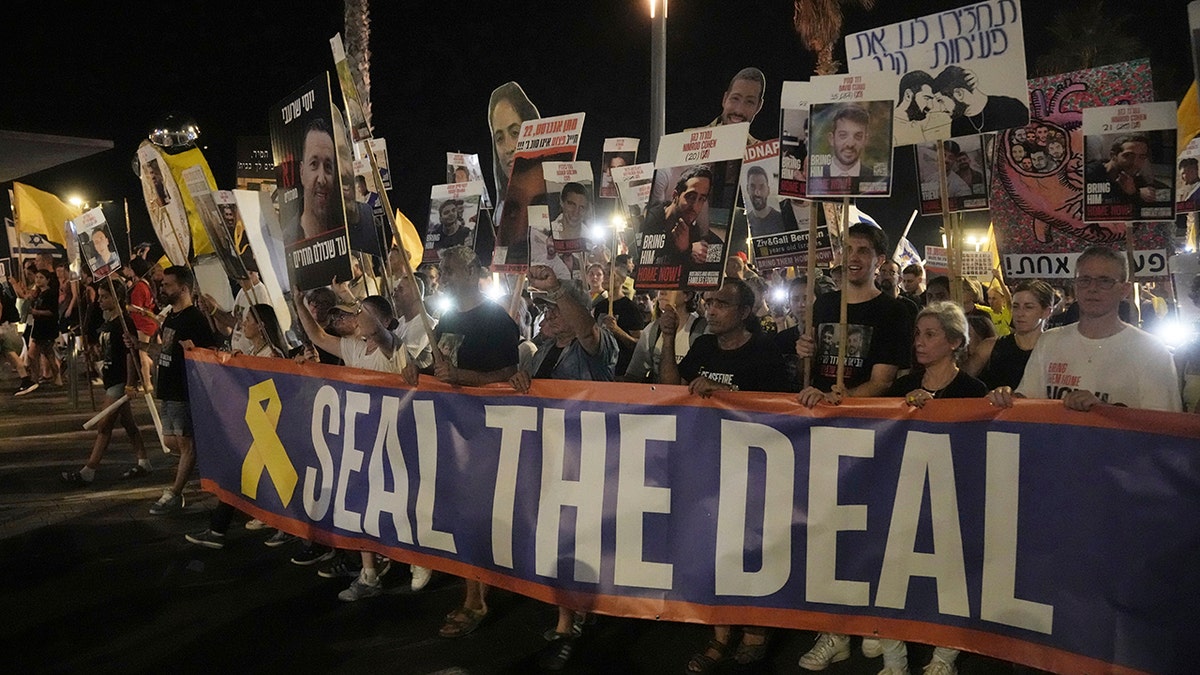
Protesters outside the U.S. Embassy branch in Tel Aviv demanding the end of the war and immediate release of hostages held by Hamas on Saturday, July 26, 2025. (AP Photo/Mahmoud Illean)
“Government constraints and fears are holding back the opening of immigration offices and the establishment of humanitarian zones. We simply don’t know how to win,” Amrusi added.
The U.S. and Israel pulled their negotiating teams from Doha, Qatar, on Thursday.
U.S. special envoy Steve Witkoff said Friday that the decision came after Hamas’ latest response “clearly shows a lack of desire to reach a ceasefire in Gaza.”
HAMAS LOSING IRON GRIP ON GAZA AS US-BACKED GROUP GETS AID TO PALESTINIANS IN NEED
“While the mediators have made a great effort, Hamas does not appear to be coordinated or acting in good faith,” Witkoff wrote on X. “We will now consider alternative options to bring the hostages home and try to create a more stable environment for the people of Gaza. It is a shame that Hamas has acted in this selfish way. We are resolute in seeking an end to this conflict and a permanent peace in Gaza.”
In a statement released by his office, Israeli Prime Minister Benjamin Netanyahu echoed Witkoff, saying, “Hamas is the obstacle to a hostage release deal.”
“Together with our U.S. allies, we are now considering alternative options to bring our hostages home, end Hamas’s terror rule, and secure lasting peace for Israel and our region,” he said.
Egypt and Qatar, which are mediating the talks alongside the United States, said the pause was only temporary and that talks would resume, though they did not say when.
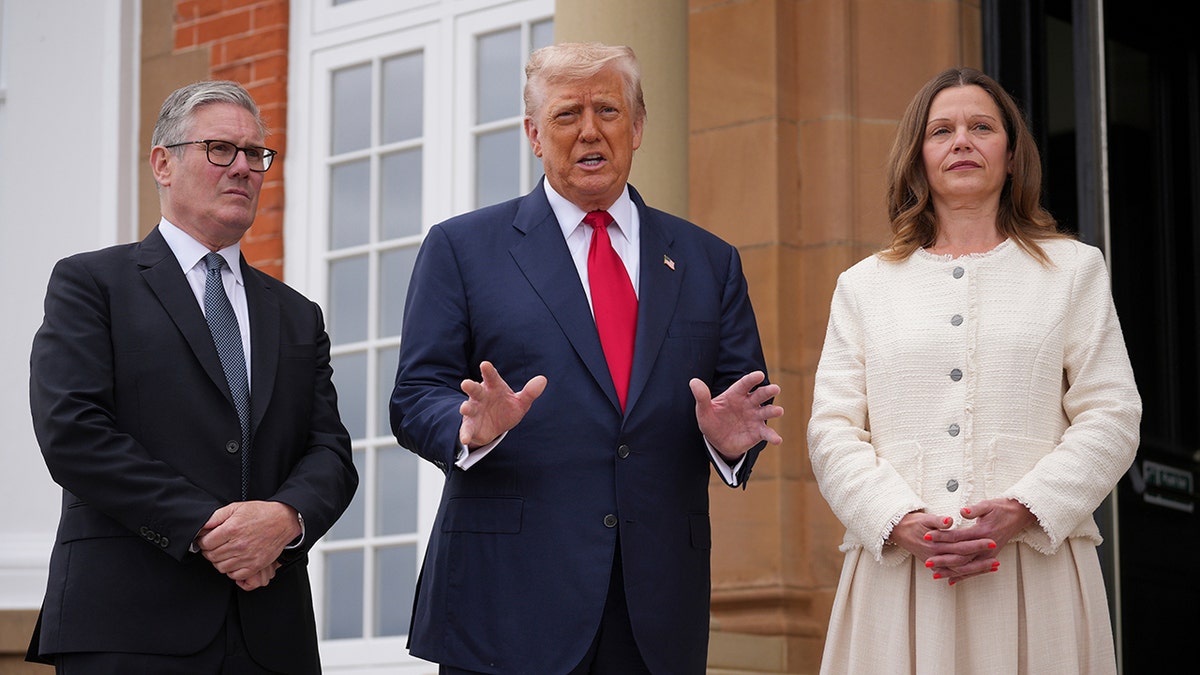
President Donald Trump, center, meets with Britain’s Prime Minister Keir Starmer and his wife Victoria Starmer in Turnberry, Scotland, on Monday, July 28, 2025. (Christopher Furlong/Pool Photo via AP)
Meeting with President Donald Trump at his golf course in Scotland on Monday, British Prime Minister Keir Starmer came determined to press the U.S. to take a larger role in helping quell what he called a “desperate situation” amid increasing reports of starvation in Gaza as the Israel-Hamas war rages.
Trump at first lamented that the U.S. had not gotten enough credit for previously providing food aid. He shifted his tone when reporters questioned him about images of emaciated children from Gaza.
When asked if he agreed with Netanyahu’s recent remarks about concerns of mass starvation in Gaza being overstated, he replied, “I don’t know. I mean, based on television, I would say not particularly because those children look very hungry.”
Starmer added, “I think people in Britain are revolted at seeing what they are seeing on their screens.”
Trump said Israel “has a lot of responsibility” for what’s happening but is hampered by what its actions might mean for the prospects of Israeli hostages Hamas has been holding since it attacked Israel in 2023.
“I think Israel can do a lot,” Trump said, adding of Netanyahu, “I want him to make sure they get the food.”
CLICK HERE TO GET THE FOX NEWS APP
Israel, meanwhile, has maintained that it is doing what it can to get humanitarian aid to Gazans. The country’s foreign ministry shared a video on Tuesday of what it says is Hamas “violently looting” aid, keeping it from civilians.
The foreign ministry also called out major media outlets for sharing an image of an emaciated Palestinian child, implying that the boy’s condition is the result of starvation. Israel identified the boy as Osama al-Raqab, who suffers from cystic fibrosis. The ministry said Israel enabled him to go to Italy for treatment, while the media used his appearance to demonize the Jewish state.
“This is what a modern blood libel looks like,” the ministry said.
The Associated Press contributed to this report.

